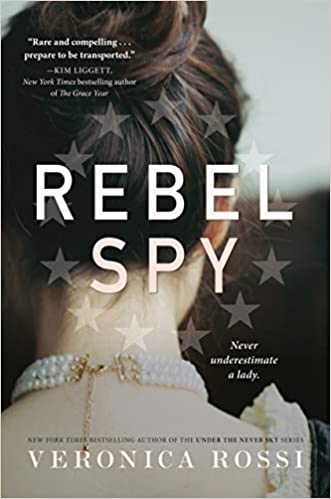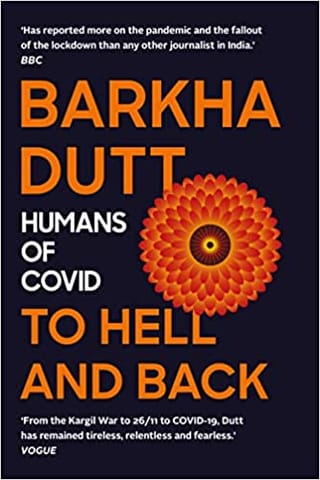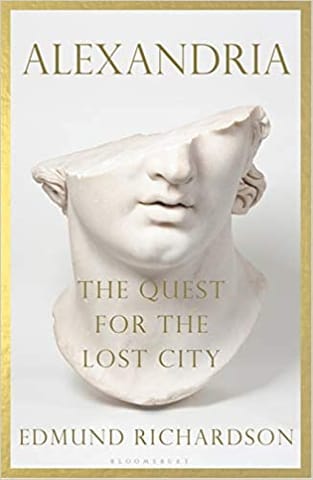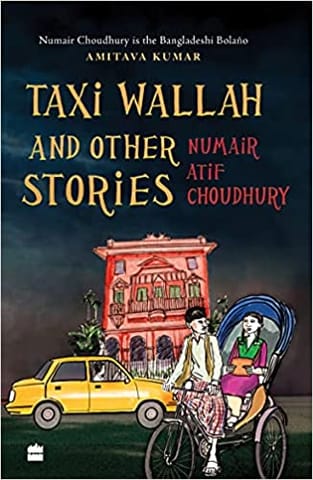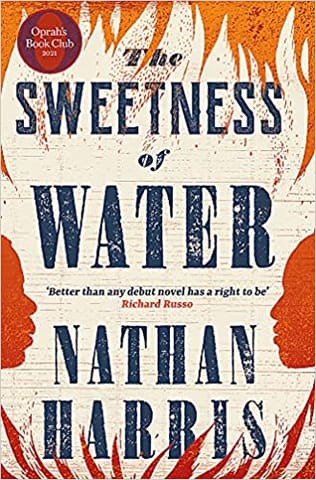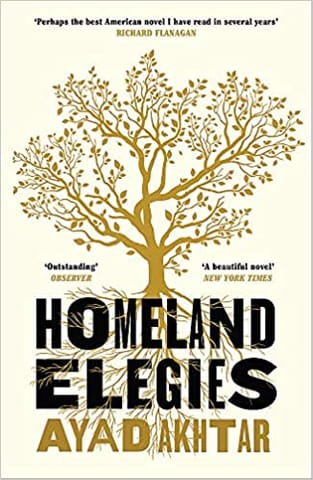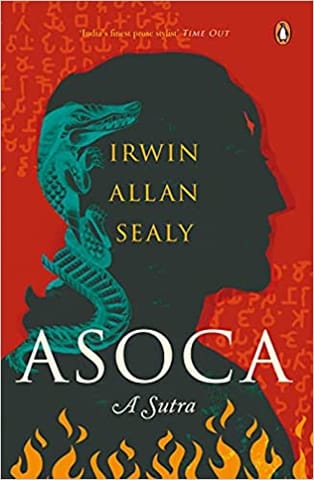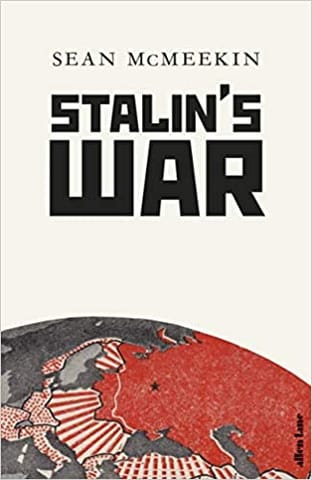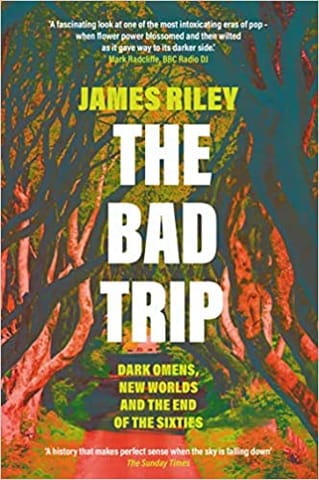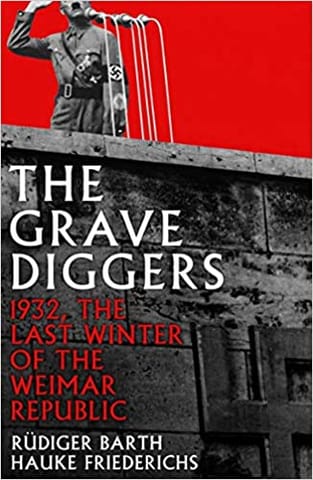-
Non-ficton
- Non-ficton
-
Contemporary Fiction
- Contemporary Fiction
-
Children
- Children
-
Comics & Graphic Novels
- Comics & Graphic Novels
-
Non-Fiction
- Non-Fiction
-
Fiction
- Fiction
A reimagining of the story behind Agent 355--a New York society girl and spy for George Washington during the Revolutionary War--perfect for fans of Julie Berry's The Lovely War.
Rebellious Frannie Tasker knows little about the war between England and its thirteen colonies in 1776, until a shipwreck off her home in Grand Bahama Island presents an unthinkable opportunity. The body of a young woman floating in the sea gives Frannie the chance to escape her brutal stepfather--and she takes it.
Assuming the identity of the drowned Emmeline Coates, Frannie is rescued by a British merchant ship and sails with the crew to New York. For the next three years, Frannie lives a lie as Miss Coates, swept up in a courtship by a dashing British lieutenant. But after witnessing the darker side of the war, she realizes that her position gives her power. Soon she's eavesdropping on British officers, risking everything to pass information on to George Washington's Culper spy ring as agent 355. Frannie believes in the fight for American liberty--but what will it cost her? Inspired by the true "355" and rich in historical detail and intrigue, this is the story of an unlikely New York society girl turned an even unlikelier spy.
Review
“With lush prose, rich historical detail, and a heroine that explodes off the page, Rebel Spy is a true feat of fiction. Rossi does more than tell the story of a forgotten American hero: she reminds us how much women have driven the course of history--and how many of them we have forgotten. I could not put this book down.” —Susan Dennard, author of the New York Times bestselling Witchlands series
“Love, revolution, intrigue and danger: Rossi has woven a thrilling tale.” —Martha Brockenbrough, author of Alexander Hamilton, Revolutionary
“Fierce, feminist historical fiction! Impeccably researched and irresistibly told.” —Jessica Spotswood, author of A Tyranny of Petticoats
"Rich in historical detail and inspired by a true story. . . . A riveting read." —Kirkus Reviews
"Romance rivals intrigue in a story that readers will find the very opposite of dry history." —Booklist
"Rossi excels at portraying the danger of Frannie’s society life and intelligence work while crafting a daring heroine and her compelling exploits." —Publishers Weekly
"A thrilling tale of deception, intrigue, and romance." —The Bulletin
About the Author
Excerpt. © Reprinted by permission. All rights reserved.
Chapter 1
Wrecker
West End, Grand Bahama Island
August 1776
The last time I ever went wrecking was August of my fifteenth year. I was still just a wild girl then, living in West End, not a thought in my head about war yet, nor about spying. My mind was only on Mama.
She’d passed on to heaven only a week earlier, but in my imagination, she was still breathing. Still singing to herself as she stirred the pepper pot soup. Still telling me stories about her girlhood days in España as she worked a comb through my sea-brined hair.
When Sewel came to fetch me to go wrecking--Sewel was Mama’s husband, not my real papa--he found me in the garden pulling weeds and daydreaming of the great castle in Baiona that Mama used to run through barefoot when she was my age.
“Francisca,” he said, in the same gravelly voice he used with the goats and the swine.
I set my spade down and shaded my eyes as I looked up. With the afternoon sun over his shoulders, I couldn’t see his face--only that he was already swaying. “Yes, sir?”
“Storm’s coming in fast, and the currents is swirling round Valparaíso wreck.” He said it Val-prizo. Not how Mama said it, the right way, like our Spanish forebears. “Get your diving trousers on and don’t make me wait, else you’ll be swimming out there, understand?”
“Yes, sir.”
He leaned over and spat tobacco so close to me I could almost taste it. Then he turned down the beach trail, grunting with every step he took on his foot with the missing toes.
I tugged my gardening apron off and hurried home, eagerness and dread tumbling in my stomach. I loved diving wrecks more than anything, but it meant spending time alone with Sewel.
Pushing through the door, I stopped to breathe in the last traces of Mama’s scent--a mix of sweet coconut and the sour sweat that had come when she’d taken to bed for good. My gaze went to the empty mattress, then to the dirty pots stacked by the basin and the sand dusting the planks beneath my feet. I’d always taken pride in this house. It was made of salvaged ship’s timbers, puzzled together with pine logs I’d helped cut down myself. At night, with whisper of the surf drifting in, it felt like living inside a great conch shell. But since losing Mama, nothing felt the same.
Kneeling before the trunk, I found the trousers and shirt I used for diving and changed into them, leaving my jumper and sweaty shift where they fell. Then I sprinted to the beach, my stride long and smooth without petticoats slowing me.
As I came through the trees, I saw thick clouds bunching on the horizon and whispered a quick prayer they’d stay there. In West End, two things that never stayed away long enough were hurricanes and hunger.
Sewel had already gotten the wherry past the breakers. Two other boats bobbed out there as well--our usual wrecking crew. Also every inhabitant on our island. Jonah Baines and his boys were pressed together in their little red skiff, three heads of equal height gleaming like polished copper. Moses Wiggins and his daughter Mercy floated closer to shore, Mercy waving when she saw me.
I smiled and waved back as I broke the first waves with my feet. Then I dove, and all I could hear was the ocean’s singing, the bubbles and waves as they rose up and blended with my breaths. With every kick and stroke I felt a little stronger. By the time I reached the wherry, I’d shed some of my sadness and felt halfway to being me again.
I grabbed the gunwale to pull myself in.
Sewel’s hand came down on my wrist. “Molasses would’ve got here first, Francisca.”
“Yes, sir.”
He didn’t let go. I knew better than to meet his bleary eyes, so I kicked in place and stared at the red feather on his new round-brim hat. The very day Mama went in the ground, Sewel had sailed for Nassau, returning only that morning. While I’d poured my tears into her pillow, he’d gone hat shopping.
At last he let me go. I climbed aboard and checked that my shirt covered me in the right places, though there wasn’t much to cover. Then I squeezed the water from my braids.
Sewel turned to speak to Mr. Baines, making his voice loud enough so Moses Wiggins could hear as well. Moses and Mercy were runaways and Sewel never spoke to them direct. “Tide’s an iron hook today. Best we run past Memory Rock, then veer north.”
With that, the men got to raising the sails and setting a course, except Moses, who had no sail and had to row his way out there.
Soon as we got underway, Sewel unstoppered a bottle of rum and leaned back, resting his arm on the tiller. I could see the silvery letter M branded on the brawn of his thumb. It was Mercy who told me what that letter stood for--manslayer--but I knew what it meant long before I learned the word for it.
I turned fore and trailed my fingers through the water. With the waves rippling and my dark braid hanging over my shoulder, I could almost imagine it was Mama’s face staring back at me instead of mine. Fathoms below, an angelfish spooked and disappeared into a bed of whip seaweed. Over on the Baines boat, the boys starting singing songs about Captain Teach and the good days of pirating gone by, when earning your daily bread was as easy as taking it from someone else, while Sewel and Mr. Baines called back and forth about the war with the rebellious American colonies.
Wrecking was how we earned our daily bread. We helped ships that had run up on sandbars or reefs as they cruised through the Bahama Channel--sandbars and reefs we knew better than anyone. If the ship couldn’t be kedged back to deep water, we hauled away the cargo for a share. In rarer times, when the ship was a total loss and sank, we dove for its sunken spoils, sometimes uncovering them for years after the wreck itself.
I dove for sunken spoils. Sewel never did the diving because of his missing toes, he claimed, which made no sense to me. Fish swam, didn’t they?
Sewel had told me once how he’d lost them on a burning merchant ship when a fiery yard fell and smashed half his foot. He’d nearly been killed that day, he’d said, but God looked out for drunks, fools, and sailors. God must’ve loved Sewel fierce ’cause he was all three.
Like he was peering into my disloyal thoughts, Sewel stretched out his leg and ran his foot against my shin, the thick scars scratching me like bark.
I pulled away, my heart jumping in my chest.
Sewel shook his head at me. Then he tipped the bottle back and drank.
By the time we got to the Valparaíso, the empty bottle rattled round the bottom of the wherry and thunder rumbled in the distance. The tide was so high that only the tip of the old wreck’s mainmast stuck out, like a cross staked right in the sea.
“Less go, Francisca,” Sewel slurred. He tossed the anchor overboard and spat at the sea to bring us luck. “We en’t got much time.”
I checked the rope belting my trousers. The sea flashed like pewter, dull and dark. I always felt a little dizzy when I couldn’t see to the bottom, not knowing what awaited me down there.
“Get diving.” Sewel pulled off his hat and wiped his sweaty forehead. The rum had brought the blood into his eyes. “And best not disappoint. I en’t got a drop of patience today, understand?”
Anger rose inside me like smoke. “Yes, sir.”
Over on the Baines boat, Owen and Daniel Baines shoved each other and laughed as they dove in. Mercy and Moses were already in the water, and their tiny boat ran up and down the swells empty. I sucked in a few breaths, readying my lungs, a feeling of strength and daring filling me.
“Sewel, sir?” I said, looking over my shoulder. “I was just wonderin’ . . . you gonna have any patience tomorrow?” He lunged across the wherry to grab me, but I leapt into the air--and crashed into freedom.
Kicking hard, I swam to Mercy.
“You ought not provoke him, Frannie,” she said as I reached her. “You can’t say things like that no more.”
Mercy was thirteen--two years younger than me, but ten years smarter. I’d waited years for a friend in West End. When I’d finally gotten one, I’d gotten the best one.
“I guess I have to stop breathing, then.” She didn’t laugh, so I said, “He won’t remember. He finished a whole bottle of kill-devil on the way here.”
“What if he does remember?” Our knees bumped as we treaded water. “You’re his daughter now, Frannie. His alone.”
My throat cinched up like a belt. For weeks I’d been avoiding that very truth, hiding in my memories of Mama instead, but Mercy was right. Sewel loved to torment me, but when I’d lost my patience before, Mama had been there to stand between us. Without her, I had no idea how I’d survive. “Don’t worry, Mercy. I en’t afraid of that birdbrain,” I said, sinking my voice to a drawl, like Sewel’s.
Her eyes slid to him. “Birds are smarter than that man. If he was a bird, he’d fly backward.”
I grinned. “Probably barking, too.”
We clasped our hands together and drew three deep breaths. Then we let go and dove.
I kicked down, plunging fathom by fathom, the hush of the sea seeping into my mind and my muscles. By the time I touched the slippery wood ribs of the Valparaíso, the boats were just blurry shadows on the surface. With the pestering drag of the tide, I knew I wouldn’t have much time for searching, but there was no use moaning about it. I ran my hand along the hull, kicking to the seabed; then I rummaged through the sand for whatever felt solid, and pushed off.
I knew as I kicked up I had nothing good. Bits of coral and shells, only. Most of the Valparaíso’s treasures were long gone, but a big storm like this might uncover overlooked finds, like shoe buckles or spoons or even coins. Tesoros del tiempo, Mama had called them. Treasures brought by time.
“Well?” Sewel said as I broke the surface. He’d moved over to Mr. Baines’s boat, and they were sharing a fresh bottle.
“Nothing, sir.” I held up my empty hands to show him, then dove before he could holler at me.
A few more searches turned up a rusted hammer, a few nails. Everything slick with the grit and spit of the sea. Nothing worth an egg.
I moved on and began to search the ship itself, swimming through its hatches and twisting through the hold as I peered into silty crates and reached inside murky hogsheads. Soon my mind opened and spun into daydreams, turning the nail that grabbed at my shirttails into a cutpurse, the eel peering from inside a barrel into a demon. Every inch of this ship had told me a story at one time or another, from the ballast bricks, which had surely once made castles, to the rope tied to the prow, which drifted like a string in search of its missing kite.
Mama used to say that some daydreamers built castles in the sky, but I built my castillos en el mar. I knew of no better place to open my mind than fathoms below.
After an hour or so, Mercy and I met behind her papa’s boat. My eyes burned from the salt and my legs and arms felt heavy as bricks.
“I found plenty of sand.” I waited for her to say she’d found plenty of salt water. Mercy and I never found nothing.
“We have to get out, Frannie. Look.”
I blinked my pickled eyes and followed her gaze to the black clouds. “You think it’s a hurricane?”
“Not the storm. Look.” She pointed just beyond the Valparaíso, where the sea’s surface rippled.
My breath caught as a great fin sliced up.
Shark. Biggest one I’d ever seen. Long as the wherry and near as wide.
We’d swum near sharks plenty of times, but never one this excited, pushing so high at times I could see its gills.
“Mercy, come on,” Moses said, reaching down to help her into the boat.
I didn’t waste a second; I swam for the wherry, fear turning me into an arrow. In seconds, I reached it and heaved myself aboard, landing with a thud.
Sewel snored away like a beast, his big body slumped into the curve of the wherry’s stern. Trembling with tiredness and fear, I hauled up the anchor and set it inside the well. The shark still circled nearby, and every rumble of thunder shook the air in my lungs. I grabbed the lines to raise the sail, more than ready to get home.
“Did I say it was time to leave?”
My every muscle tensed. I let go of the line and turned. “No, sir.”
Sewel pulled out of his slump. “Sit.”
I found myself sinking onto the thwart and grabbing the wood beneath me to keep steady.
He picked his hat up from the well where it’d fallen, and took his time brushing the water and sand away before setting it back on his head. “It’s past time we discuss how things are gonna be now, with your mama gone.” He rubbed his chin and stared at me, heedless of the lightning bolts slicing across sky. “You are an oddity, Francisca,” he said. “An aberration. You have no fortune, nor any beauty. You have no gentleness in your heart, nor a wisp of feminine softness. What you do have is a terrible temper and an odious lack of refinement. Added to the disgrace of having a fallen woman for a mother, you got no chance of ever luring an upright man to take you for a wife. So I have decided that I will save you. I will make the sacrifice, in your mama’s memory, and take you as mine. En’t nothing wrong with it, as we en’t blood, and I’m nearer in age to you than I was to her, so . . .” He lifted his shoulders. “En’t nothing wrong nor unnatural with it.”
A warm sickness pushed into my throat and I felt myself falling back. Plunging into a cloud of silence. There was no logic, no sense to his words, but I’d expected this. I’d seen this coming. For months, since Mama had taken to bed, I’d seen hints in his eyes and how they followed me. I’d felt it in his hands, which had found me at any excuse. I’d been dreading this--but I still felt shock. I still couldn’t understand it.
Rebel Spy
SIZE GUIDE
- ISBN: 9781524771249
- Author: Veronica Rossi
- Publisher: Ember
- Pages: 368
- Format: Paperback
Book Description
A reimagining of the story behind Agent 355--a New York society girl and spy for George Washington during the Revolutionary War--perfect for fans of Julie Berry's The Lovely War.
Rebellious Frannie Tasker knows little about the war between England and its thirteen colonies in 1776, until a shipwreck off her home in Grand Bahama Island presents an unthinkable opportunity. The body of a young woman floating in the sea gives Frannie the chance to escape her brutal stepfather--and she takes it.
Assuming the identity of the drowned Emmeline Coates, Frannie is rescued by a British merchant ship and sails with the crew to New York. For the next three years, Frannie lives a lie as Miss Coates, swept up in a courtship by a dashing British lieutenant. But after witnessing the darker side of the war, she realizes that her position gives her power. Soon she's eavesdropping on British officers, risking everything to pass information on to George Washington's Culper spy ring as agent 355. Frannie believes in the fight for American liberty--but what will it cost her? Inspired by the true "355" and rich in historical detail and intrigue, this is the story of an unlikely New York society girl turned an even unlikelier spy.
Review
“With lush prose, rich historical detail, and a heroine that explodes off the page, Rebel Spy is a true feat of fiction. Rossi does more than tell the story of a forgotten American hero: she reminds us how much women have driven the course of history--and how many of them we have forgotten. I could not put this book down.” —Susan Dennard, author of the New York Times bestselling Witchlands series
“Love, revolution, intrigue and danger: Rossi has woven a thrilling tale.” —Martha Brockenbrough, author of Alexander Hamilton, Revolutionary
“Fierce, feminist historical fiction! Impeccably researched and irresistibly told.” —Jessica Spotswood, author of A Tyranny of Petticoats
"Rich in historical detail and inspired by a true story. . . . A riveting read." —Kirkus Reviews
"Romance rivals intrigue in a story that readers will find the very opposite of dry history." —Booklist
"Rossi excels at portraying the danger of Frannie’s society life and intelligence work while crafting a daring heroine and her compelling exploits." —Publishers Weekly
"A thrilling tale of deception, intrigue, and romance." —The Bulletin
About the Author
Excerpt. © Reprinted by permission. All rights reserved.
Chapter 1
Wrecker
West End, Grand Bahama Island
August 1776
The last time I ever went wrecking was August of my fifteenth year. I was still just a wild girl then, living in West End, not a thought in my head about war yet, nor about spying. My mind was only on Mama.
She’d passed on to heaven only a week earlier, but in my imagination, she was still breathing. Still singing to herself as she stirred the pepper pot soup. Still telling me stories about her girlhood days in España as she worked a comb through my sea-brined hair.
When Sewel came to fetch me to go wrecking--Sewel was Mama’s husband, not my real papa--he found me in the garden pulling weeds and daydreaming of the great castle in Baiona that Mama used to run through barefoot when she was my age.
“Francisca,” he said, in the same gravelly voice he used with the goats and the swine.
I set my spade down and shaded my eyes as I looked up. With the afternoon sun over his shoulders, I couldn’t see his face--only that he was already swaying. “Yes, sir?”
“Storm’s coming in fast, and the currents is swirling round Valparaíso wreck.” He said it Val-prizo. Not how Mama said it, the right way, like our Spanish forebears. “Get your diving trousers on and don’t make me wait, else you’ll be swimming out there, understand?”
“Yes, sir.”
He leaned over and spat tobacco so close to me I could almost taste it. Then he turned down the beach trail, grunting with every step he took on his foot with the missing toes.
I tugged my gardening apron off and hurried home, eagerness and dread tumbling in my stomach. I loved diving wrecks more than anything, but it meant spending time alone with Sewel.
Pushing through the door, I stopped to breathe in the last traces of Mama’s scent--a mix of sweet coconut and the sour sweat that had come when she’d taken to bed for good. My gaze went to the empty mattress, then to the dirty pots stacked by the basin and the sand dusting the planks beneath my feet. I’d always taken pride in this house. It was made of salvaged ship’s timbers, puzzled together with pine logs I’d helped cut down myself. At night, with whisper of the surf drifting in, it felt like living inside a great conch shell. But since losing Mama, nothing felt the same.
Kneeling before the trunk, I found the trousers and shirt I used for diving and changed into them, leaving my jumper and sweaty shift where they fell. Then I sprinted to the beach, my stride long and smooth without petticoats slowing me.
As I came through the trees, I saw thick clouds bunching on the horizon and whispered a quick prayer they’d stay there. In West End, two things that never stayed away long enough were hurricanes and hunger.
Sewel had already gotten the wherry past the breakers. Two other boats bobbed out there as well--our usual wrecking crew. Also every inhabitant on our island. Jonah Baines and his boys were pressed together in their little red skiff, three heads of equal height gleaming like polished copper. Moses Wiggins and his daughter Mercy floated closer to shore, Mercy waving when she saw me.
I smiled and waved back as I broke the first waves with my feet. Then I dove, and all I could hear was the ocean’s singing, the bubbles and waves as they rose up and blended with my breaths. With every kick and stroke I felt a little stronger. By the time I reached the wherry, I’d shed some of my sadness and felt halfway to being me again.
I grabbed the gunwale to pull myself in.
Sewel’s hand came down on my wrist. “Molasses would’ve got here first, Francisca.”
“Yes, sir.”
He didn’t let go. I knew better than to meet his bleary eyes, so I kicked in place and stared at the red feather on his new round-brim hat. The very day Mama went in the ground, Sewel had sailed for Nassau, returning only that morning. While I’d poured my tears into her pillow, he’d gone hat shopping.
At last he let me go. I climbed aboard and checked that my shirt covered me in the right places, though there wasn’t much to cover. Then I squeezed the water from my braids.
Sewel turned to speak to Mr. Baines, making his voice loud enough so Moses Wiggins could hear as well. Moses and Mercy were runaways and Sewel never spoke to them direct. “Tide’s an iron hook today. Best we run past Memory Rock, then veer north.”
With that, the men got to raising the sails and setting a course, except Moses, who had no sail and had to row his way out there.
Soon as we got underway, Sewel unstoppered a bottle of rum and leaned back, resting his arm on the tiller. I could see the silvery letter M branded on the brawn of his thumb. It was Mercy who told me what that letter stood for--manslayer--but I knew what it meant long before I learned the word for it.
I turned fore and trailed my fingers through the water. With the waves rippling and my dark braid hanging over my shoulder, I could almost imagine it was Mama’s face staring back at me instead of mine. Fathoms below, an angelfish spooked and disappeared into a bed of whip seaweed. Over on the Baines boat, the boys starting singing songs about Captain Teach and the good days of pirating gone by, when earning your daily bread was as easy as taking it from someone else, while Sewel and Mr. Baines called back and forth about the war with the rebellious American colonies.
Wrecking was how we earned our daily bread. We helped ships that had run up on sandbars or reefs as they cruised through the Bahama Channel--sandbars and reefs we knew better than anyone. If the ship couldn’t be kedged back to deep water, we hauled away the cargo for a share. In rarer times, when the ship was a total loss and sank, we dove for its sunken spoils, sometimes uncovering them for years after the wreck itself.
I dove for sunken spoils. Sewel never did the diving because of his missing toes, he claimed, which made no sense to me. Fish swam, didn’t they?
Sewel had told me once how he’d lost them on a burning merchant ship when a fiery yard fell and smashed half his foot. He’d nearly been killed that day, he’d said, but God looked out for drunks, fools, and sailors. God must’ve loved Sewel fierce ’cause he was all three.
Like he was peering into my disloyal thoughts, Sewel stretched out his leg and ran his foot against my shin, the thick scars scratching me like bark.
I pulled away, my heart jumping in my chest.
Sewel shook his head at me. Then he tipped the bottle back and drank.
By the time we got to the Valparaíso, the empty bottle rattled round the bottom of the wherry and thunder rumbled in the distance. The tide was so high that only the tip of the old wreck’s mainmast stuck out, like a cross staked right in the sea.
“Less go, Francisca,” Sewel slurred. He tossed the anchor overboard and spat at the sea to bring us luck. “We en’t got much time.”
I checked the rope belting my trousers. The sea flashed like pewter, dull and dark. I always felt a little dizzy when I couldn’t see to the bottom, not knowing what awaited me down there.
“Get diving.” Sewel pulled off his hat and wiped his sweaty forehead. The rum had brought the blood into his eyes. “And best not disappoint. I en’t got a drop of patience today, understand?”
Anger rose inside me like smoke. “Yes, sir.”
Over on the Baines boat, Owen and Daniel Baines shoved each other and laughed as they dove in. Mercy and Moses were already in the water, and their tiny boat ran up and down the swells empty. I sucked in a few breaths, readying my lungs, a feeling of strength and daring filling me.
“Sewel, sir?” I said, looking over my shoulder. “I was just wonderin’ . . . you gonna have any patience tomorrow?” He lunged across the wherry to grab me, but I leapt into the air--and crashed into freedom.
Kicking hard, I swam to Mercy.
“You ought not provoke him, Frannie,” she said as I reached her. “You can’t say things like that no more.”
Mercy was thirteen--two years younger than me, but ten years smarter. I’d waited years for a friend in West End. When I’d finally gotten one, I’d gotten the best one.
“I guess I have to stop breathing, then.” She didn’t laugh, so I said, “He won’t remember. He finished a whole bottle of kill-devil on the way here.”
“What if he does remember?” Our knees bumped as we treaded water. “You’re his daughter now, Frannie. His alone.”
My throat cinched up like a belt. For weeks I’d been avoiding that very truth, hiding in my memories of Mama instead, but Mercy was right. Sewel loved to torment me, but when I’d lost my patience before, Mama had been there to stand between us. Without her, I had no idea how I’d survive. “Don’t worry, Mercy. I en’t afraid of that birdbrain,” I said, sinking my voice to a drawl, like Sewel’s.
Her eyes slid to him. “Birds are smarter than that man. If he was a bird, he’d fly backward.”
I grinned. “Probably barking, too.”
We clasped our hands together and drew three deep breaths. Then we let go and dove.
I kicked down, plunging fathom by fathom, the hush of the sea seeping into my mind and my muscles. By the time I touched the slippery wood ribs of the Valparaíso, the boats were just blurry shadows on the surface. With the pestering drag of the tide, I knew I wouldn’t have much time for searching, but there was no use moaning about it. I ran my hand along the hull, kicking to the seabed; then I rummaged through the sand for whatever felt solid, and pushed off.
I knew as I kicked up I had nothing good. Bits of coral and shells, only. Most of the Valparaíso’s treasures were long gone, but a big storm like this might uncover overlooked finds, like shoe buckles or spoons or even coins. Tesoros del tiempo, Mama had called them. Treasures brought by time.
“Well?” Sewel said as I broke the surface. He’d moved over to Mr. Baines’s boat, and they were sharing a fresh bottle.
“Nothing, sir.” I held up my empty hands to show him, then dove before he could holler at me.
A few more searches turned up a rusted hammer, a few nails. Everything slick with the grit and spit of the sea. Nothing worth an egg.
I moved on and began to search the ship itself, swimming through its hatches and twisting through the hold as I peered into silty crates and reached inside murky hogsheads. Soon my mind opened and spun into daydreams, turning the nail that grabbed at my shirttails into a cutpurse, the eel peering from inside a barrel into a demon. Every inch of this ship had told me a story at one time or another, from the ballast bricks, which had surely once made castles, to the rope tied to the prow, which drifted like a string in search of its missing kite.
Mama used to say that some daydreamers built castles in the sky, but I built my castillos en el mar. I knew of no better place to open my mind than fathoms below.
After an hour or so, Mercy and I met behind her papa’s boat. My eyes burned from the salt and my legs and arms felt heavy as bricks.
“I found plenty of sand.” I waited for her to say she’d found plenty of salt water. Mercy and I never found nothing.
“We have to get out, Frannie. Look.”
I blinked my pickled eyes and followed her gaze to the black clouds. “You think it’s a hurricane?”
“Not the storm. Look.” She pointed just beyond the Valparaíso, where the sea’s surface rippled.
My breath caught as a great fin sliced up.
Shark. Biggest one I’d ever seen. Long as the wherry and near as wide.
We’d swum near sharks plenty of times, but never one this excited, pushing so high at times I could see its gills.
“Mercy, come on,” Moses said, reaching down to help her into the boat.
I didn’t waste a second; I swam for the wherry, fear turning me into an arrow. In seconds, I reached it and heaved myself aboard, landing with a thud.
Sewel snored away like a beast, his big body slumped into the curve of the wherry’s stern. Trembling with tiredness and fear, I hauled up the anchor and set it inside the well. The shark still circled nearby, and every rumble of thunder shook the air in my lungs. I grabbed the lines to raise the sail, more than ready to get home.
“Did I say it was time to leave?”
My every muscle tensed. I let go of the line and turned. “No, sir.”
Sewel pulled out of his slump. “Sit.”
I found myself sinking onto the thwart and grabbing the wood beneath me to keep steady.
He picked his hat up from the well where it’d fallen, and took his time brushing the water and sand away before setting it back on his head. “It’s past time we discuss how things are gonna be now, with your mama gone.” He rubbed his chin and stared at me, heedless of the lightning bolts slicing across sky. “You are an oddity, Francisca,” he said. “An aberration. You have no fortune, nor any beauty. You have no gentleness in your heart, nor a wisp of feminine softness. What you do have is a terrible temper and an odious lack of refinement. Added to the disgrace of having a fallen woman for a mother, you got no chance of ever luring an upright man to take you for a wife. So I have decided that I will save you. I will make the sacrifice, in your mama’s memory, and take you as mine. En’t nothing wrong with it, as we en’t blood, and I’m nearer in age to you than I was to her, so . . .” He lifted his shoulders. “En’t nothing wrong nor unnatural with it.”
A warm sickness pushed into my throat and I felt myself falling back. Plunging into a cloud of silence. There was no logic, no sense to his words, but I’d expected this. I’d seen this coming. For months, since Mama had taken to bed, I’d seen hints in his eyes and how they followed me. I’d felt it in his hands, which had found me at any excuse. I’d been dreading this--but I still felt shock. I still couldn’t understand it.
Related Books
User reviews
NEWSLETTER
Subscribe to get Email Updates!
Thanks for subscribing.
Your response has been recorded.

India's Iconic & Independent Book Store offering a vast selection of books across a variety of genres Since 1978.
"We Believe In The Power of Books" Our mission is to make books accessible to everyone, and to cultivate a culture of reading and learning. We strive to provide a wide range of books, from classic literature, sci-fi and fantasy, to graphic novels, biographies and self-help books, so that everyone can find something to read.
Whether you’re looking for your next great read, a gift for someone special, or just browsing, Midland is here to make your book-buying experience easy and enjoyable.
We are shipping pan India and across the world.
For Bulk Order / Corporate Gifting
 +91 9818282497 |
+91 9818282497 |  [email protected]
[email protected]
Click To Know More
INFORMATION
POLICIES
ACCOUNT
QUICK LINKS
ADDRESS
Shop No.20, Aurobindo Palace Market, Near Church, New Delhi

